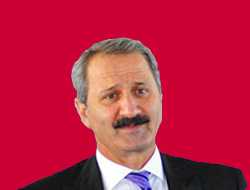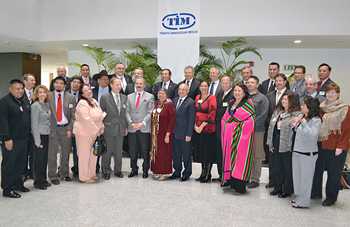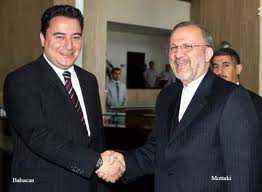Minister said that Tunisia should lift obstacles to trade to pave the way for Turkish businessmen who were eager to make investments in this country.
Thursday, 02 December 2010 17:21
 Turkish foreign trade minister said on Thursday that Tunisia should lift obstacles to trade to pave the way for Turkish businessmen who were eager to make investments in this country.
Turkish foreign trade minister said on Thursday that Tunisia should lift obstacles to trade to pave the way for Turkish businessmen who were eager to make investments in this country.
Delivering a speech at Turkey-Tunisia Business Forum in Tunis, State Minister for foreign trade Zafer Caglayan said that Turkish businessmen were ready to invest in this country as they did in their own countries.
Caglayan said his visit aimed at boosting trade between Turkey and Tunisia and inviting Turkish businessmen to this country.
Tunisian economy was growing and Tunisia had several important energy resources, he said. “Tunisia should diversify its products and increase its investments abroad,” he said.
Turkey has made several economic initiatives in the world in the past 8 years and it was the 15th largest economy of the world, he said. Turkey reached this position with its political and economic stability as well as free economy, he said.
Caglayan said that Turkey was exerting great efforts to boost its trade with all countries especially neighboring ones and the country was eager to increase its commercial ties with Tunisia.
Tunisian Minister of Trade and Handicrafts Ridha Ben Mosba said that the two countries should enhance bilateral ties.
Mosba said Tunisia offered a good environment for businesspeople and several investment opportunities.
AA





